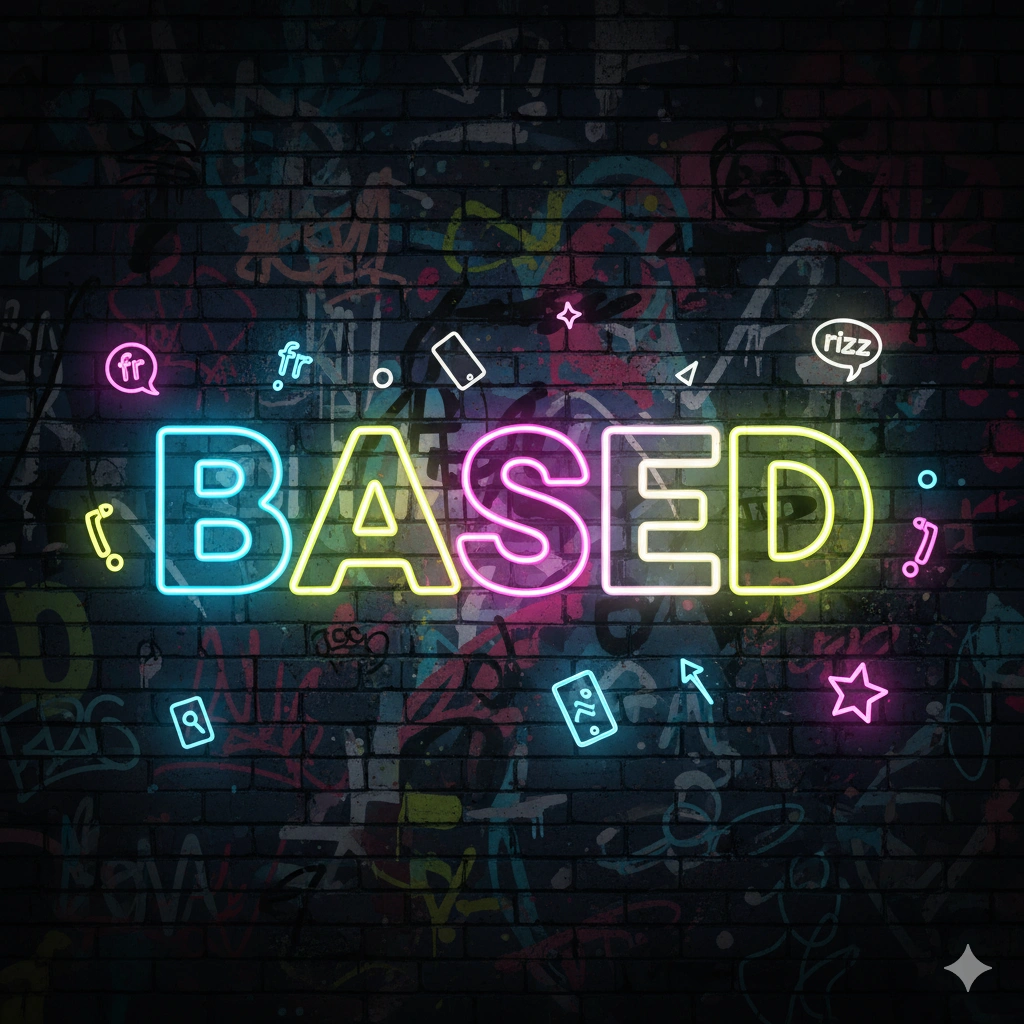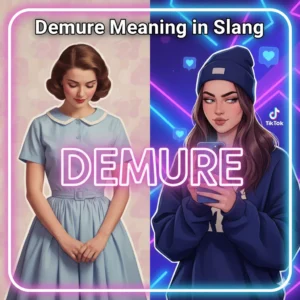Language on the internet moves fast. A single word can shift from insult to compliment in a matter of months. One of the most iconic slang terms to emerge from online culture is “based slang meaning.” You’ve probably seen it on Twitter, TikTok, Reddit, or meme pages — but what exactly does it mean? Is being “based” good or bad? And how do you use it without sounding out of touch?
Based Meaning Slang
Based is a slang term used to describe someone or something that is confident, authentic, and unapologetically true to their beliefs, often without caring about others’ opinions.
This guide breaks down the true meaning of “based” in slang, its origins, how it’s used today, and how it compares to other trending internet words like woke, sigma, and cringe.
By the end, you’ll know exactly how to use “based” confidently — whether you’re scrolling through memes or chatting with friends.
What Does Based Mean in Slang?
At its core, “based” means being unapologetically yourself, standing by your beliefs, and not caring what others think.
Unlike other slang terms, “based” can carry a positive or negative meaning depending on context. In most cases today, it’s used as a compliment — calling someone “based” means you admire their honesty, boldness, or authenticity.
Simple definition:
Based = Saying or doing something that’s true to yourself, even if it’s unpopular.
For example:
- Someone speaks their mind without fear → “That’s so based.”
- A meme expresses an unpopular opinion people secretly agree with → “Based.”
- A person rejects fake trends and stays real → “He’s based.”
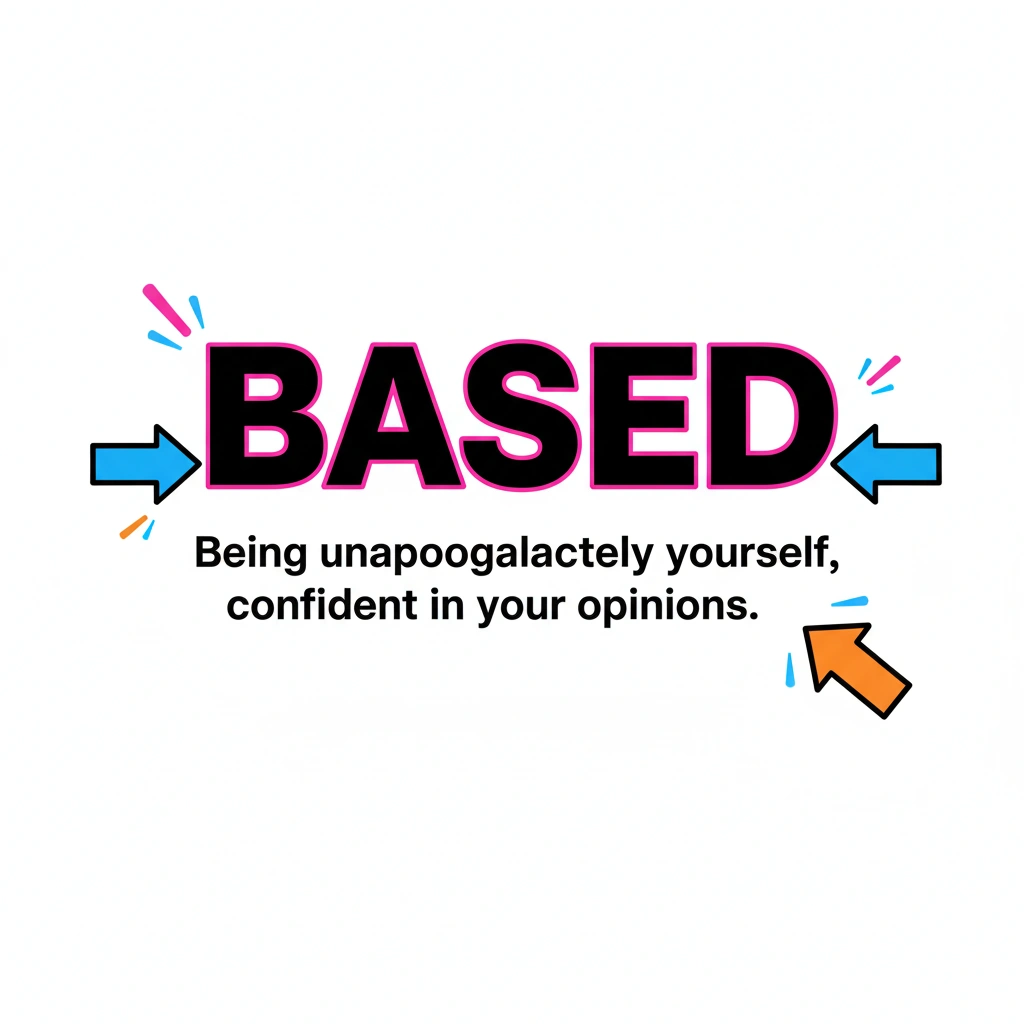
Origins of Based
The slang didn’t start as a compliment. Here’s how it evolved:
- Early 2000s: The word “based” originally came from hip-hop culture, especially tied to rapper Lil B (The BasedGod). Back then, it referred to being high on “base” (freebasing cocaine). Lil B flipped the meaning into something positive, calling himself “based” to mean being free, authentic, and unique.
- 2010s: Internet culture adopted the term. Memes, forums, and social media users started using “based” to praise people who stood their ground or spoke uncomfortable truths.
- 2020s: The word exploded on TikTok, Twitter, and gaming communities. Today, “based” is mainstream slang, used by Gen Z and Millennials alike as the opposite of cringe.
How Based Is Used Today
The beauty of slang is flexibility. “Based” appears in different contexts — from jokes to serious praise. Here are the main ways people use it:
- Compliment:
- “You don’t follow fake trends? That’s based.”
- Meaning: Respect for being authentic.
- Agreement:
- “Pizza for breakfast is the best.” → “Based.”
- Meaning: “I strongly agree.”
- Irony/Sarcasm:
- Used jokingly in memes.
- Example: “I think Mondays are fun.” → “So based…”
- Cultural/Political:
- Some use it for bold or controversial takes.
- Example: “He said what everyone was thinking. Based.”
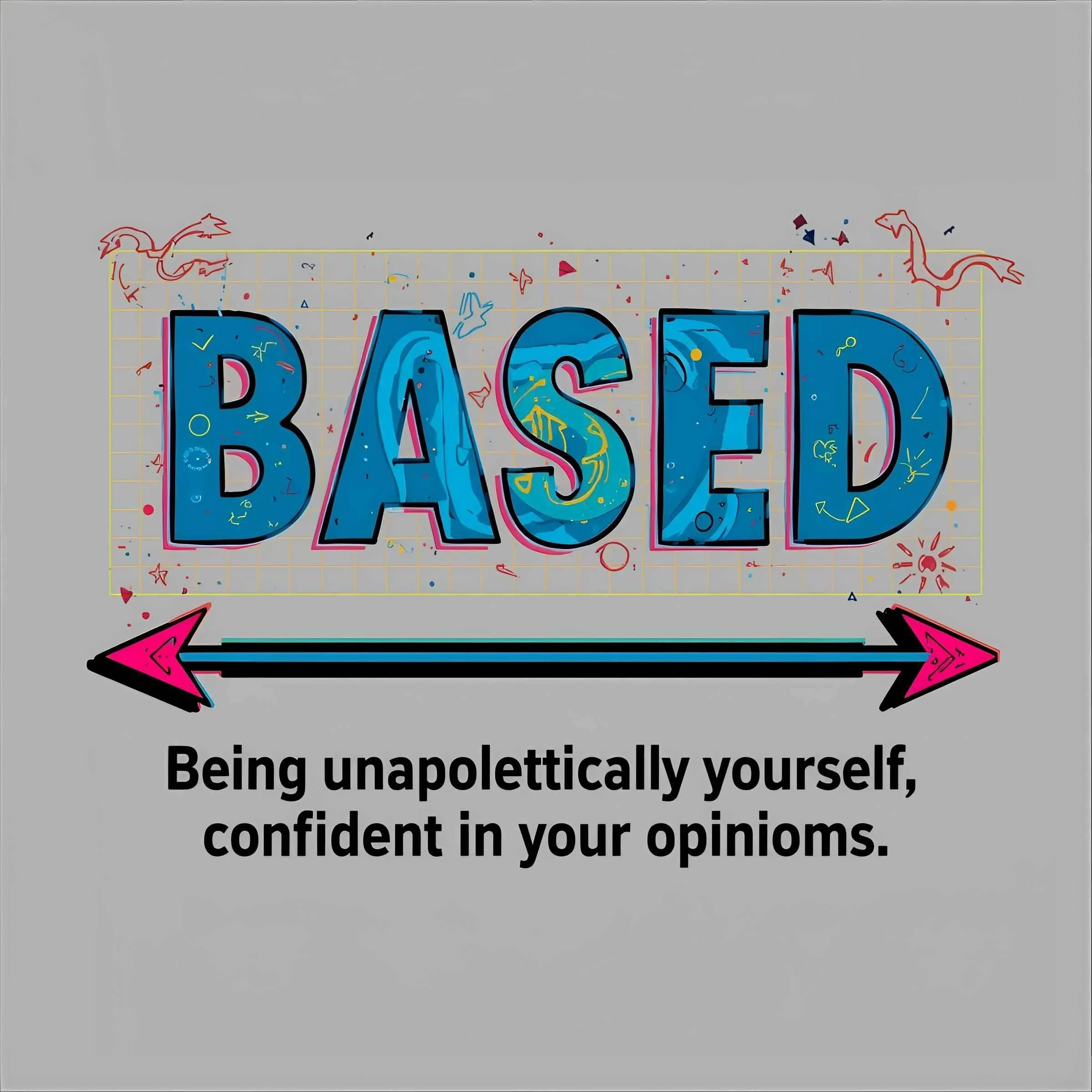
Based vs Other Slang (Comparison Table)
| Term | Meaning | Context | Tone |
|---|---|---|---|
| Based | Being authentic, true to self, or speaking truth | Online debates, memes, compliments | Positive (mostly) |
| Cringe | Embarrassing, awkward, trying too hard | Social media fails, awkward moments | Negative |
| Woke | Originally: socially aware. Now: used sarcastically for being overly political | Political, cultural | Mixed |
| Sigma | Lone wolf personality, independent thinker | Self-improvement, memes | Positive |
| Chad | Confident, socially dominant male archetype | Meme culture, humor | Positive/Funny |
Examples of Based in Pop Culture & Social Media
- TikTok: Creators often comment “based” under relatable or bold content.
- Reddit: Used in subreddits like r/memes and r/dankmemes as a quick reaction.
- Twitter/X: People tweet “based” to show approval of hot takes.
- Gaming Communities: Gamers use “based” in chats to support risky but bold plays.
Based Meaning Meme
- Player 1: “I’m rushing mid with a knife.”
- Player 2: “Based.”
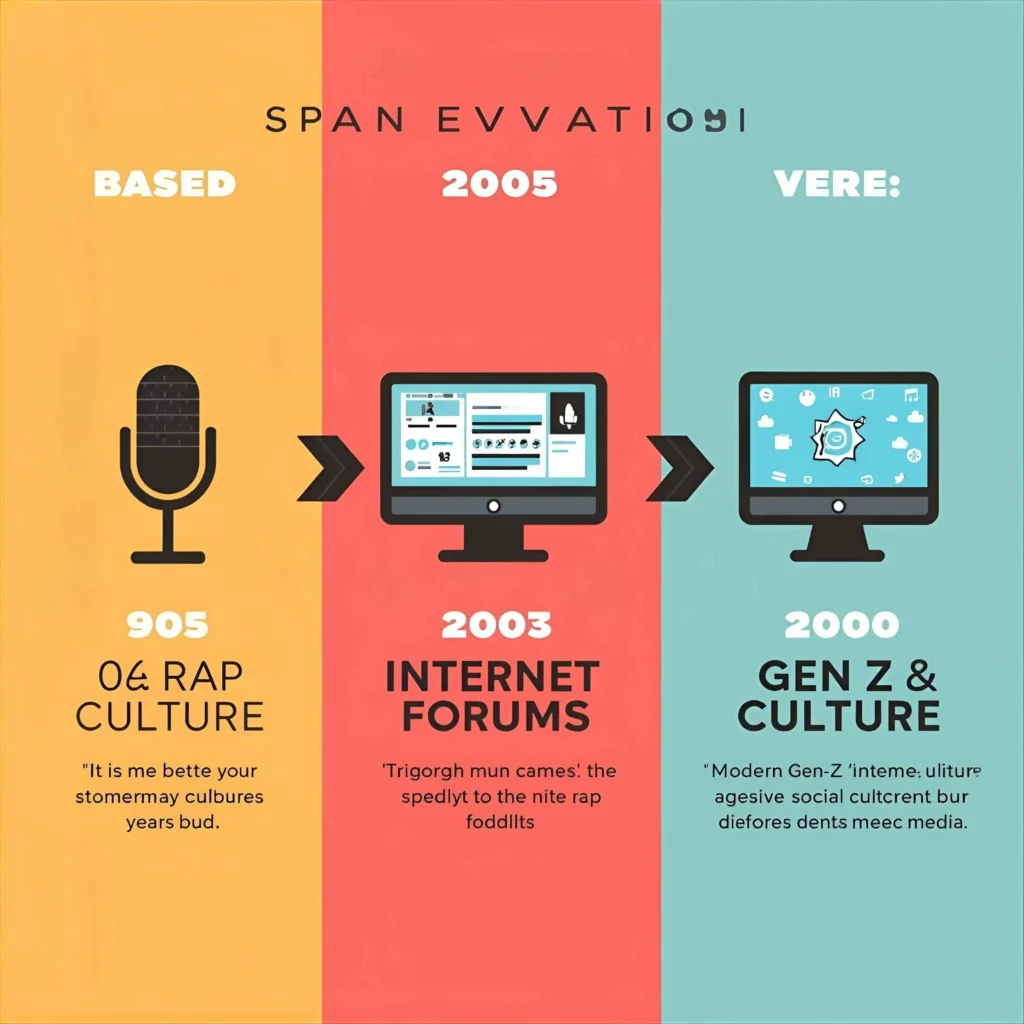
Why Based Became So Popular
Several reasons explain its rise:
- Short & punchy: Easy to type, perfect for reactions.
- Versatile: Works in serious or funny contexts.
- Counter-culture vibe: Appeals to people tired of fake online behavior.
- Meme-driven: Popularized by Lil B fans, then turbocharged by TikTok and meme pages.
Common Misunderstandings
- Is “based” always positive?
- Mostly yes, but tone matters. Sarcasm can flip it.
- Does it mean political alignment?
- Not inherently. Both left and right communities use it.
- Is it the same as “woke”?
- No. Woke relates to awareness; based relates to authenticity.
Is Based Good or Bad?
Short answer: “Based” is usually good — but its meaning depends on context, tone, and audience.
What Does “Based” Mean Today?
In modern internet and Gen Z slang, “based” is used to approve, praise, or respect someone for being honest, confident, or unapologetically themselves. It often signals that a person is speaking their truth without caring about others’ opinions.
👉 In most everyday conversations, “based” = positive.
When “Based” Is Good ✅
“Based” is considered good when it’s used to:
- Support authentic opinions
- Praise confidence or courage
- Agree with a bold or unpopular statement
- Show respect for someone who stands firm
Example:
“She spoke facts and didn’t back down. That’s based.”
Here, “based” clearly means admired and respected.
When “Based” Can Be Bad ⚠️
“Based” can feel negative or controversial when:
- Used to support offensive or extreme views
- Said sarcastically
- Used without context in sensitive discussions
Example:
“That take is ‘based,’ but it’s also pretty harmful.”
In this case, the word signals approval, but the opinion itself may be problematic.
Why People Argue If “Based” Is Good or Bad
The confusion comes from how flexible the word is. “Based” doesn’t judge what is said — it only shows approval of how confidently it’s said. That’s why:
- One group may see it as empowering
- Another may see it as reckless or tone-deaf
How to Use Based Correctly
- ✅ Use it when you admire someone for honesty.
- ✅ Drop it in memes or short replies to show approval.
- ❌ Don’t overuse it — it loses punch if spammed.
- ❌ Avoid using it in professional or formal settings.
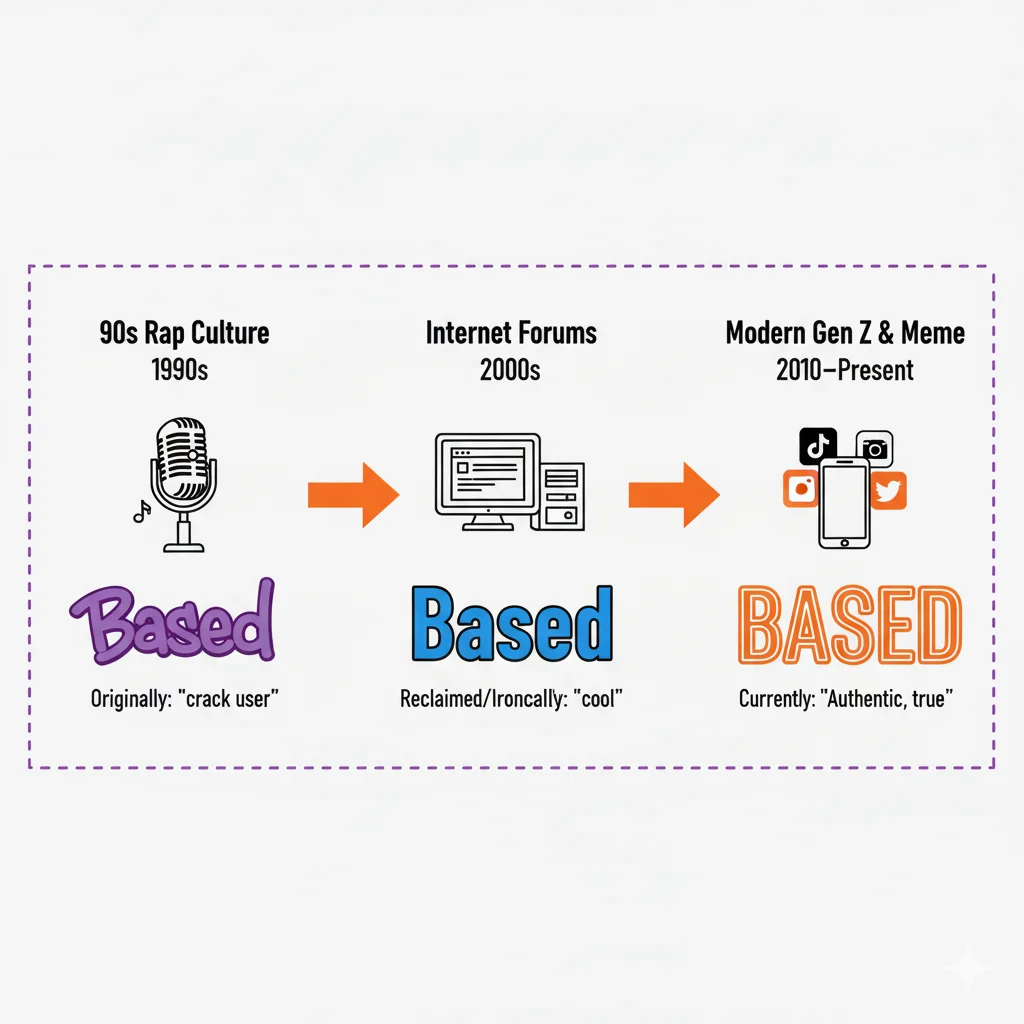
Correct example:
- “You quit your job to follow your passion? Based.”
Wrong example:
- In a business email: “Your proposal is based.” (not appropriate).
FAQs About Based Meaning Slang
Q1. What does “based” mean in slang?
It means being unapologetically yourself, authentic, or standing by your beliefs without worrying about others’ opinions.
Q2. Is being called “based” a compliment?
Yes, usually. It means someone respects your honesty or boldness.
Q3. Who started using “based”?
The modern positive meaning is credited to rapper Lil B, who redefined the term in the early 2000s.
Q4. Is “based” the opposite of “cringe”?
Yes. If something is authentic, it’s “based.” If it’s awkward or fake, it’s “cringe.”
Q5. Can “based” be used sarcastically?
Definitely. Like many internet terms, context and tone decide the meaning.
Conclusion
The slang word “based” has traveled a fascinating path — from drug culture origins to becoming a badge of authenticity and respect online. Today, calling someone “based” is one of the highest compliments in meme culture. It signals admiration for truth, boldness, and individuality.
Whether you see it in TikTok comments, gaming chats, or political memes, the meaning remains clear: being “based” is about staying true to yourself.
Next time you hear it, you’ll know — it’s not just slang, it’s a cultural stamp of approval.

Hi, I’m Jam Sun, the creator of Punspanda.com. I write fun, clever puns, jokes, and easy-to-read humor content designed to entertain, inform, and make people smile. My goal is simple: turn everyday words into share-worthy laughs.

